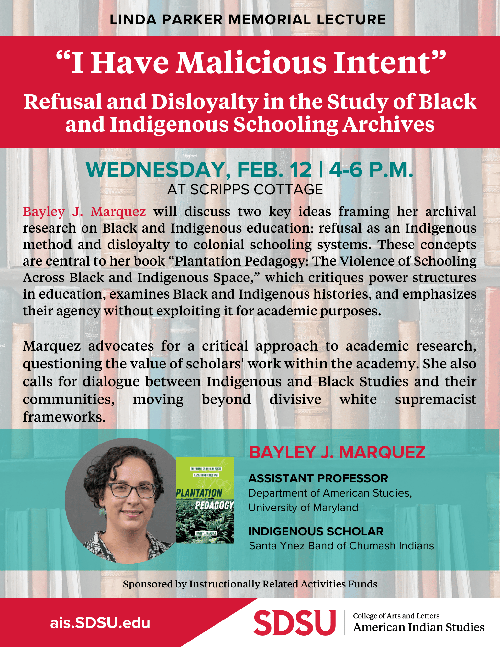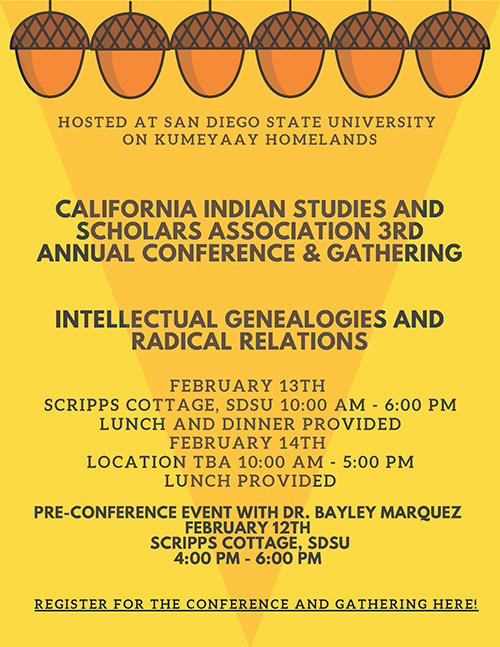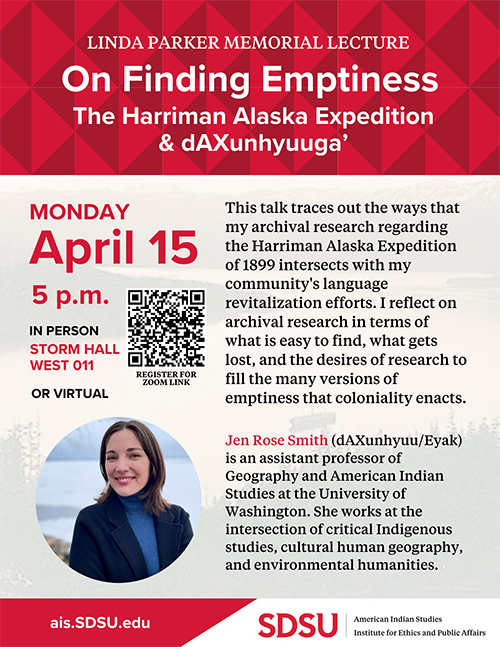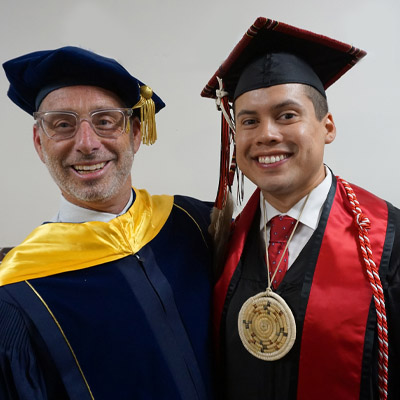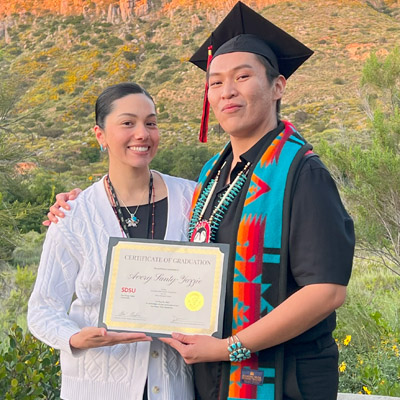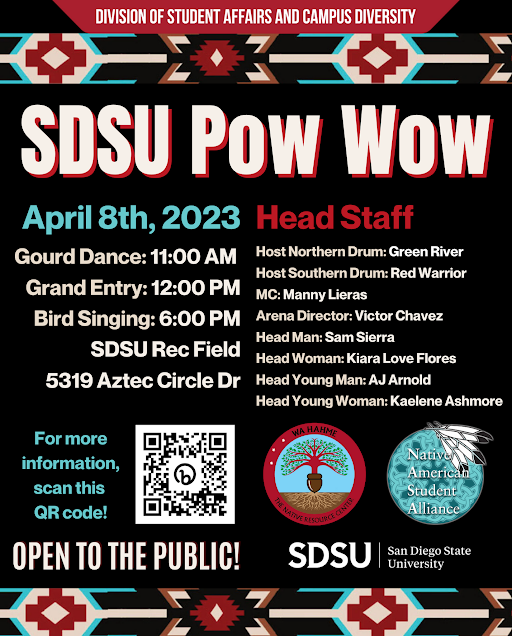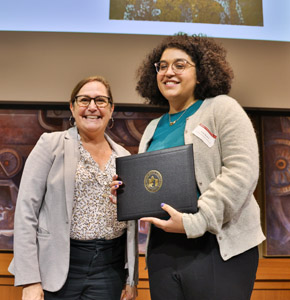
New and Events
Our events are open to the public and we would love to have you join us. We also host
a series of lectures and other events throughout the year that are open to everyone.
10th Annual Linda Parker Memorial
“I have Malicious Intent:” Refusal and Disloyalty in the Study of Black and Indigenous Schooling Archives
Lecture by Bayley J. Marquez, Ph.D.
Wednesday, February, 12, 2025
4-6 p.m.
at Scripps Cottage
Beginning this talk not from the main arguments of my book but from two obscure, combative, and contentious footnotes (one might say beginning from the bottom), I engage the methodological and theoretical premises that underpin my approach to archival research on Black and Indigenous education: refusal as an Indigenous method and disloyalty to the colonial machines of schooling. These two ethical touchstones underlie the work I have done in "Plantation Pedagogy: The Violence of Schooling Across Black and Indigenous Space," a work of scholarship that centers the examination of structures of power inherent in schooling models, intersections in between Black and Indigenous histories, and an attempt to balance on the knife's edge between honoring Black and Indigenous agency and resistance and refusing to commodify it for academic prestige. I argue for an approach to research that engages in a skeptical examination of the academic landscape and asks us as scholars to question to what extent it can be trusted. Does the academy deserve all aspects of our work? What venues do we wish to present which aspects of our work and which venues should some parts remain hidden? These questions are part of the larger call my work makes to create spaces of conversation between Indigenous Studies and Black Studies, and Native and Black communities that are not centered on the zero-sum discourses presented by white supremacist institutions.
Bayley J. Marquez is an Assistant Professor in the Department of American Studies, an affiliate faculty with the Harriet Tubman Department of Women, Gender, and Sexuality Studies and the Consortium for Race Gender and Ethnicity, and an Indigenous scholar from the Santa Ynez Band of Chumash Indians. As an Indigenous scholar, she acknowledges that her work and scholarship takes place on Piscataway land, former plantation land, and within a land grant university funded by the seizure and sale of Indigenous lands. With a focus on space, land, material relations, and schooling, this acknowledgement is necessary to position her work within the structure of settler colonialism and her own lived experiences. Her book "Plantation Pedagogy: The Violence of Schooling Across Black and Indigenous Space" (UC Press) examines education for Black and Indigenous students in the 19th and 20th centuries and how slavery and settlement were framed as educational processes by white reformers and educators. This form of teaching targeted Native and Black bodies as subjects to transform as well as the land as a target of teaching and transformation, fundamentally altering spaces and lives.
Sponsored by Instructionally Related Activities Funds
California Indian Studies and Scholars Association 3rd Annual Conference & Gathering
Intellectual Genealogies and Radical Relations
Thursday, February 13, 2025
10 a.m. - 6 p.m.
at Scripps Cottage, SDSU
Lunch and Dinner Provided
Friday, February 14, 2025
10 a.m. - 5 p.m.
Location TBA
Lunch Provided
Pre-Conference Event with Dr. Bayley Marquez
Thursday, February 12, 2025
4 - 6 p.m.
at Scripps Cottage, SDSU
Register for the conference and gathering.
Hosted at San Diego State University on Kumeyaay Homelands
Save the Date for Other Spring Events
- San Diego State University Powwow
April 2025 - Native Graduation
May 2025
Archived News and Events
9th Annual Linda Parker Memorial
On Finding Emptiness: The Harriman Alaska Expedition & dAXunhyuuga'
Monday, April 15, 2024
5 p.m.
in person: Storm Hall West 011 or virtual (register for the Zoom link)
This talk traces out the ways that my archival research regarding the Harriman Alaska Expedition of 1899 intersects with my community's language revitalization efforts. I reflect on archival research in terms of what is easy to find, what gets lost, and the desires of research to fill the many versions of emptiness that coloniality enacts.
Jen Rose Smith (dAXunhyuu/Eyak) is an assistant professor of Geography and American Indian Studies at the University of Washington. She works at the intersection of critical Indigenous studies, cultural human geography, and environmental humanities.
Sponsored by the Department of American Indian Stuides and the Institute for Ethics and Public Affairs.
Outstanding Graduating Senior
Every year, each department selects one of its majors to be recognized as its “Outstanding Graduating Senior.”
This year the faculty have chosen Thomas J. “TJ” Welch (Viejas Band of Kumeyaay Indians). TJ is receiving his B.A. in American Indian Studies with a minor in Anthropology.
TJ was allowed to select one faculty member as his “Most Influential Faculty Member.” He chose Dr. David Kamper for this honor.
Congratulations to you both!
Native Graduation
May 5, 2023
5 p.m. to 8 p.m.
at Mission Trails
Celebrating the accomplishments and successes of our Native students and graduates of the American Indian Studies Department. Those who have earned majors and minors in AIS will be honored, as well as those who have dedicated themselves to bettering the larger Indigenous community on campus.
Graduates are being recognized for their involvement in the following organizations: the Native Resource Center, the American Indian Studies Department, the Sycuan Institute on Tribal Gaming, the Elymash Yuuchaap Indigenous Scholars and Leaders program, the Native American Student Alliance, the Indigenous Social Work Alliance, and the School of Social Work SERVE Program.
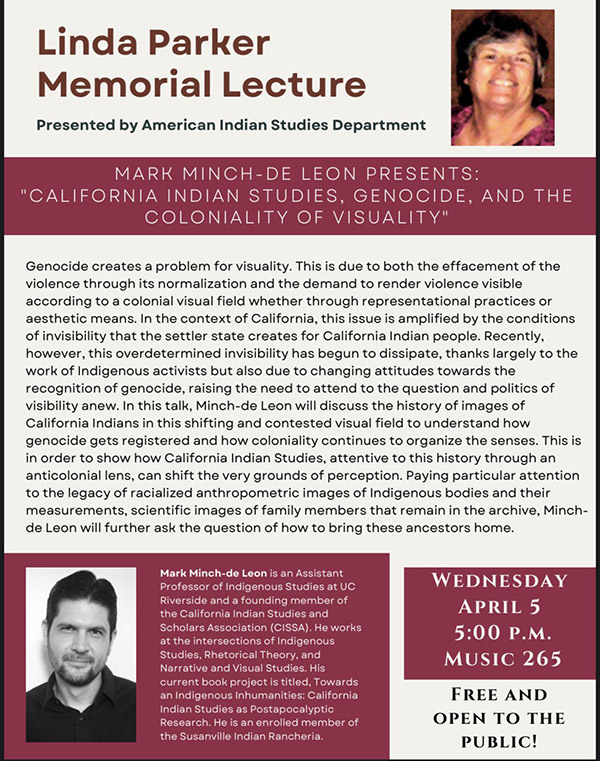 8th Annual Linda Parker Memorial
8th Annual Linda Parker Memorial
California Indian Studies, Genocide, and the Coloniality of Visuality
Wednesday, April 5, 2023
5 p.m.
Please join us honor the late Dr. Linda Parker. We are thrilled to welcome Dr. Mark Minch-de Leon (Susanville Indian Rancheria).
Genocide creates a problem for visuality. This is due to both the effacement of the violence through its normalization and the demand to render violence visible according to a colonial visual field whether through representational practices or aesthetic means. In the context of California, this issue is amplified by the conditions of invisibility that the settler state creates for California Indian people. Recently, however, this overdetermined invisibility has begun to dissipate, thanks largely to the work of Indigenous activists but also due to changing attitudes towards the recognition of genocide, raising the need to attend to the question and politics of visibility anew. In this talk, Minch-de Leon will discuss the history of images of California Indians in this shifting and contested visual field to understand how genocide gets registered and how coloniality continues to organize the senses. This is in order to show how California Indian Studies, attentive to this history through an anticolonial lens, can shift the very grounds of perception. Paying particular attention to the legacy of racialized anthropometric images of Indigenous bodies and their measurements, scientific images of family members that remain in the archive, Minchde Leon will further ask the question of how to bring these ancestors home.
San Diego State University Powwow
Saturday, April 8th, 2023
10 a.m. to 8 p.m.
at the SDSU Rec Field
The Powwow is a cultural and social event that is held annually to bring together the Native American community to SDSU. SDSU has the reputation of having one of the longest running powwows ran by a university in California. This event is open to the public and is a partnership between the Native Resource Center, the SDSU American Indian Studies Department, the Native American Student Alliance and the American Indian Alumni Chapter of SDSU.
Schedule of Events:
- 11 a.m. - Gourd Dance
- 12 p.m. - Grand Entry
- 1 p.m. to 6 p.m. - Dance Exhibitions & Honorings
- 6 p.m. - Bird Singing
Learn more about the Pow Wow on the Native Resource Center website.
Humanities Scholar Award
Wednesday, March 15, 2023
Congratulations to Esme Murdock, a professor of American Indian studies, for receiving an inaugural Humanities Scholar Award. Her articles and book chapters integrate Black and Indigenous feminist theories, settler colonial theory, and environmental ethics, foregrounding the role and agency of the land on which Black and Indigenous peoples have lived.
7th Annual Linda Parker Memorial Lecture
Thursday, February 24, 2022
3:00 p.m.
Featuring guest speaker Dr. Sarah Whitt (Choctaw Nation of Oklahoma)
Dr. Whitt will speak on adult American Indian women’s and men's experiences at the Carlisle Indian Industrial School in Carlisle, PA, the U.S.'s first off-reservation residential facility.
This virtual lecture is free and open to the public.
The event is co-sponsored by the Native Resource Center and the Native American Student Alliance.
San Diego State University Pow Wow
Saturday, April 9, 2022
For more information, visit the Native Resource Center website.
Looking forward to seeing you there!
Mite Achimowin (Heart Talk): Indigenous Women’s Expressions of Heart Health & Decolonizing Research Methods through Community-Based Digital Storytelling
By Dr. Lorena Sekwan Fontaine
Wednesday, February 23, 2022
4:00 p.m.
Virtual lecture on Zoom. Open to the public.
Dr. Lorena Sekwan Fontaine (Cree and Anishnaabe), Distinguished Professor at the University of Winnipeg and SDSU Fulbright Scholar in American Indian Studies, will present on a community-based study that uses oral history, digital storytelling and learning circles to explore culturally rooted knowledge of heart care among Indigenous women in Canada.
Co-sponsored by the SDSU American Indian Studies Department
Experience Dr. Esme Murdock's talk/interview at the 2021 National Student Leadership Conference
SDSU American Indian Studies professor Esme Murdock spoke on the topics of environmental colonization and environmental justice at the National Student Leadership Conference, at the University of San Diego on July 28, 2021.
"Basically the way that people conceive of the natural world is deeply cultural. There's a way that the traditions of your ancestors are directly related to how you exist in the world." -Esme Murdock
An exploration of her lecture is available on the NSLC YouTube channel.
Asst. Prof. Murdock to teach Environmental Justice course in Fall 2021
PHIL 325 - Environmental Justice
Instructor: Dr. Esme Murdock, Assistant Professor of American Indian Studies
Schedule: MW(F) 1-1:50PM
Description: What is environmental justice? Who is most affected by environmental injustices? Who is responsible for the state of our environmentally degraded world? What can we do to create more just and sustainable futures for all? This course concerns itself with all of these questions and serves as a multidisciplinary introduction to the concept of environmental justice.
Come and learn more about the histories, roots, and fights for environmental justice for all! No prerequisites
AMIND Minors and Majors: Speak with your departmental adviser about counting this class toward your minor, or as a major elective.
Enroll through WebPortal during Fall Registration (Schedule number 22873).
6th Annual Linda Parker Memorial Lecture
Interpersonal Relationships Between Art, Fashion, Academia, Commerce, and the Environment, Especially In Regards to Wearable Art
Featuring: Northern Chumash artist Leah Mata Fragua
Wednesday, April 28, 2021
7-8:15 p.m.
Watch the 4/28 event recording
Leah Mata Fragua is a member of the yak tityu tityu yak tiłhini (the people of tiłhini) Northern Chumash Tribe, located on the Central California Coast. Leah works as a contemporary artist creating through intergenerational practices, focused on living forms of regalia and jewelry while building upon ongoing practices in California Indian arts. Her work as a place-based artist is grounded in an understanding of the past that is interdependent with the future and the relationship she has to her homelands
Leah’s education, which includes a B.A. in Anthropology and an M.A. in Cultural Sustainability, has afforded her access to various collections and archives, furthering understanding of the technical and material expertise of yak tityu tityu (The People) and resisting the hindered access for community members whose relatives’ works are held in academic collections.
"My career as a creative artist happened organically, and I have always struggled with the decision to focus solely on art or solely on academia. Thus a few years ago, I made the decision not to actively pursue a career solely in academia or art but rather combine my passion for both and find a balance that works with my definition of success." -Leah Mata Fragua
This event is free and open to the public.
Co-sponsored by: SDSU Instructionally Related Activity Fund, Native Resource Center, and the Native American Student Alliance
2021 SDSU Native American Graduation Ceremony
Friday, May 7, 5:00 p.m.
Virtually on Zoom
We would like to invite you to the 2021 SDSU Native American Graduation Ceremony, to be held Friday, May 7, at 5:00 p.m., on Zoom
The Native Resource Center, the Department of American Indian Studies, the Sycuan Institute on Tribal Gaming, and the Native American Student Alliance are planning a special ceremony in celebration of recent Native American graduates, and students who graduated from the American Indian Studies department. Since we were still unable to hold an in-person ceremony this spring, we wanted to take time this month to honor them at a virtual event.
If you are graduating and would like to participate, please email us at [email protected].
If you would like to join as a guest, the event is open to all so we encourage you to attend to help us honor and celebrate our graduates. And please share this event with friends, family and colleagues!
The San Diego Intercollegiate Pow Wow
Saturday, May 1, 2021
The San Diego Intercollegiate Pow Wow is a collaboration between the University of California: San Diego and the San Diego State University Pow Wow Committees. The Covid-19 pandemic has changed daily life and has canceled cultural practices such as gathering for a Pow Wow. For the first time, the two campuses are working together to provide a virtual Pow Wow experience to do our duty of providing this important piece of Native/Indigenous culture.
Sponsors: SDSU Native Resource Center, UCSD Intertribal Resource Center, UCSD Office for Equity, Diversity, and Inclusion, UCSD Native American Student Alliance, UCSD Ethnic Studies Department, and the UCSD Department of Literature.
Assistant professor Esme G. Murdock joins the American Indian Studies faculty
Our department is honored to welcome SDSU assistant professor Esme Murdock, who has joined our department this semester.
Murdock received her Ph.D. in the Department of Philosophy at Michigan State University. She is currently an Assistant Professor of American Indian Studies at San Diego State University and a Mellon Postdoctoral Fellow in the Department of Philosophy at the Pennsylvania State University for the 2020-2021 Academic Year.
Her research interests include environmental justice, Indigenous and Afro-descended environmental ethics, settler colonial theory, and decolonization as land/resource rematriation. Murdock comes to this work as a descendant of enslaved Africans and settlers in North America. Her current work explores the devastating impacts of colonization and slavery on both Indigenous and Afro-descended peoples and environments on Turtle Island. She anchors her understanding of settler colonialism, in particular, in the experiences and theorization of Native and Black communities especially toward securing decolonial futures. She often writes back to mainstream environmental discourse that attempts to “read out” colonization as the context of environmental degradation and destruction, particularly in the settler colonies of the United States and Canada. Her work centers conceptions of land and relating to land found within both Indigenous and African American/Afro-descended environmental philosophies. Murdock has work published in Environmental Values, Global Ethics, Hypatia, Agricultural and Environmental Ethics, and World Philosophies.
Murdock’s first book manuscript is a project of public ecological (re)memory anchored in the understanding that land has memory. Her methods include both Indigenous memory/re-memory work and Black feminist witnessing. She is, thus, writing a land history of the South Carolina Sea Coast that engages in the diverse and often erased ecological histories, ecological heritages, ethnobotanical knowledges, and complex relations of Indigenous and Afro-descended peoples within the colonial complex of multiple European powers.
Assistant professor Olivia Chilcote featured in Diverse Issues in Higher Education
Congratulations to Prof. Olivia Chilcote for being chosen an Emerging Scholar by Diverse Issues in Higher Education magazine. Their January 2021 issue features a series on emerging scholars, and includes an article that delves into Dr. Chilcote's background, research objectives, and her many accomplishments.
Read the article on the magazine website (see Page 18).
Celebrating 45 Years of American Indian Studies at SDSU
Dear Friends,
In 1976, the Native American Studies program at San Diego State University officially became the Department of American Indian Studies. For the first time, the department listed courses with its own course numbers in the SDSU General Catalog. So this year, 2021, marks our 45th anniversary. We are enormously grateful to all of the faculty, administrators, staff, alumni, students and community members who have supported our accomplishments and milestones.
Thank you for being a part of our past, present and future!
27th Annual AIR Banquet
November 19, 2020
5:30-6:30 p.m.
Virtually from San Diego County
Our 27th Annual Awards & Fundraiser Banquet is almost here. AIR is going virtual this year so we have plenty of room for everyone to attend!
Thank all our community partners, supporters and youth participants who have made our programs possible.
Olivia Chilcote, “They Utterly Refuse”: The San Luis Rey Village’s Struggle for Land and Recognition in San Diego County, 1852-1912"
October 29, 2020
4 p.m.
Open to the public.
As the only unrecognized tribe in San Diego County and the only unrecognized band of Luiseño Indians, the San Luis Rey Band of Mission Indian’s history and experience is often overshadowed by other federally recognized tribes in the region. In this presentation, Dr. Chilcote analyzes the San Luis Rey Band’s contemporary pursuit for federal recognition as part of a longer history of U.S.-tribal relations and how the tribe’s legal status is tied to histories of Spanish, Mexican, and U.S. colonization in California.
Dr. Olivia Chilcote (San Luis Rey Band of Mission Indians) is a Critical Mission Studies Postdoctoral Fellow in the Department of History at UC Riverside and an Assistant Professor of American Indian Studies at San Diego State University.
Chair: Cliff Trafzer, Department of History, UC Riverside
Respondent: Charles Sepulveda (Tongva and Acjachemen), Assistant Professor at the University of Utah, Department of Ethnic Studies
Sponsored by: Critical Mission Studies, SDSU Department of American Indian Studies, UCSD Department of Ethnic Studies, UCSD Native American and Indigenous Studies, UC Riverside Center for Ideas and Society
Fall 2020 Native American Community Welcome Reception
Friday, August 28
1 p.m.
Students, faculty, staff and community friends are invited to participate in the Native American Community Welcome Reception via Zoom.
